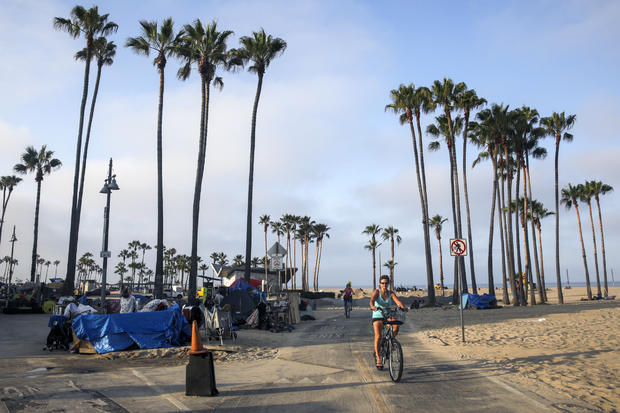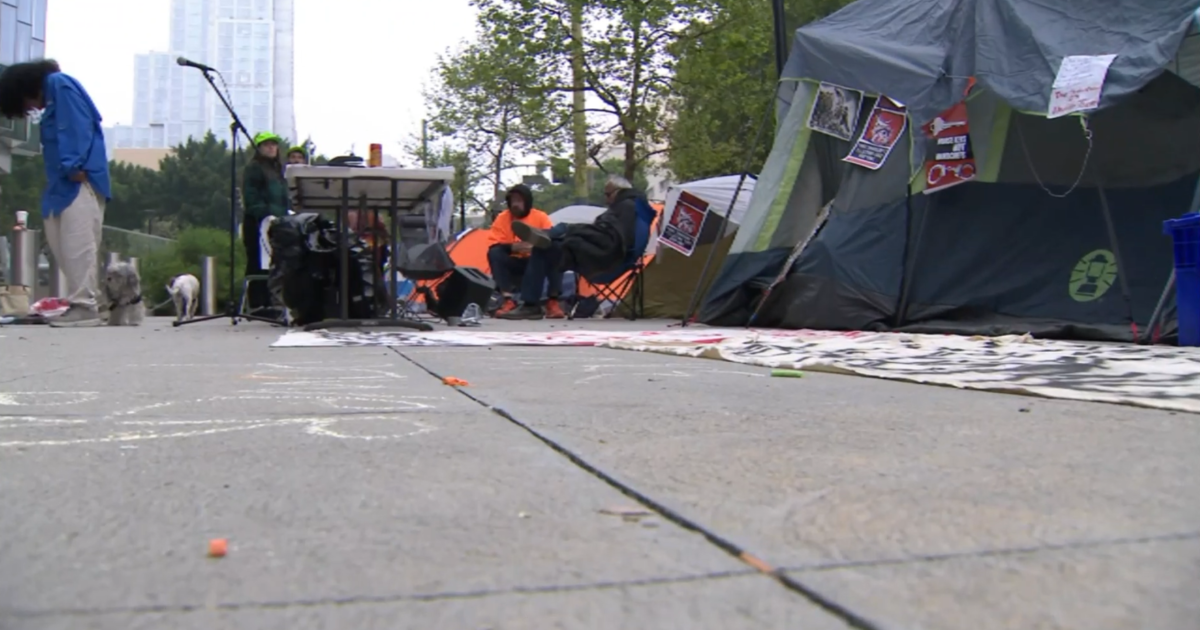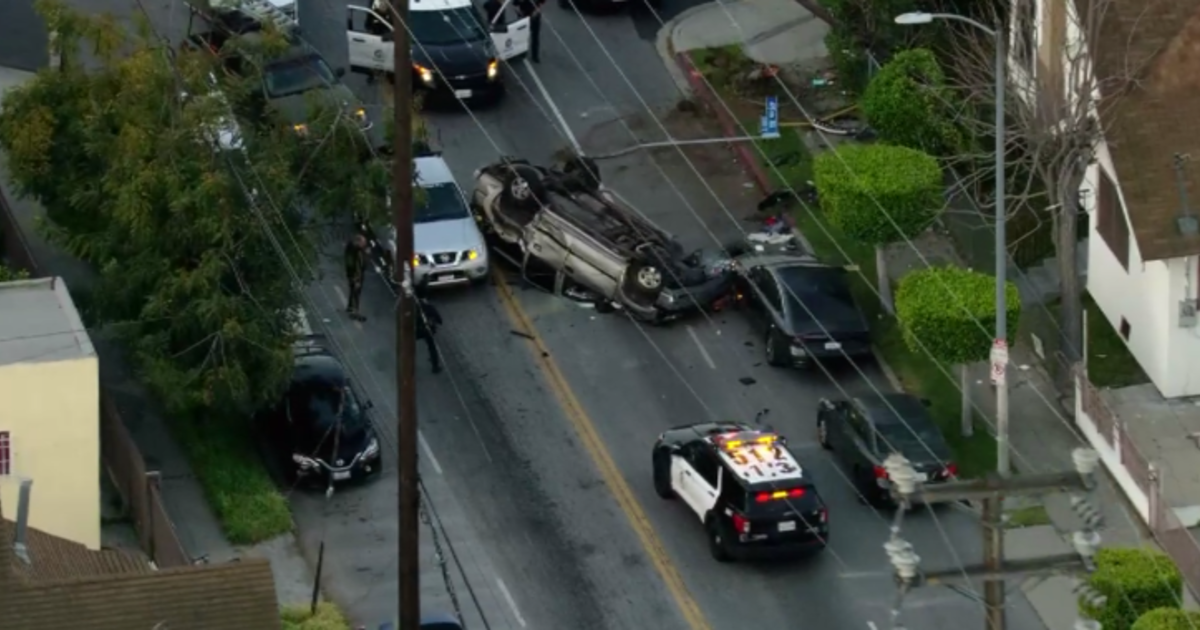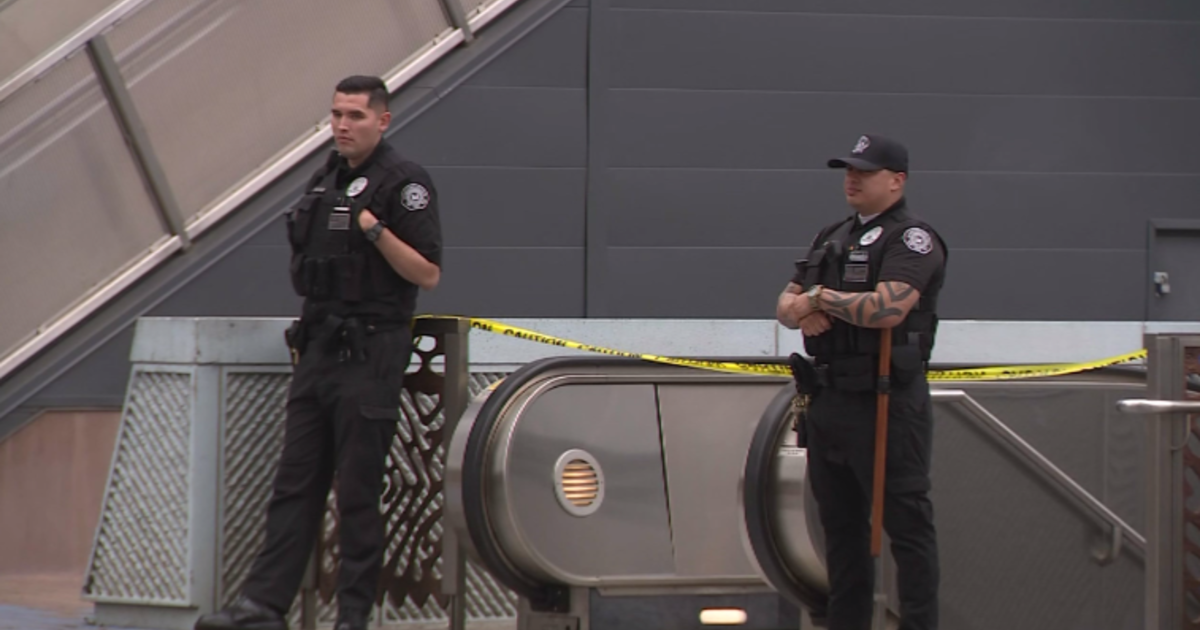LA City Council Approves Ordinance To Restrict Homeless Encampments
LOS ANGELES (CBSLA) – The Los Angeles City Council Wednesday approved an ordinance that would ban homeless encampments from certain areas of the city, including sidewalks.
It now goes to Mayor Eric Garcetti for final approval, and if signed, will go into effect 30 days later.
In a July 1 vote, the ordinance received support by a 13-2 margin from the city council. However, it required unanimous approval to pass on its first go-around. Councilman Mike Bonin and Councilwoman Nithya Raman were the two dissenters.
The ordinance bans encampments on sidewalks and driveways, freeway overpasses and on-ramps, and near libraries, parks, schools and homeless shelters.
It specifically bans homeless encampments from within 500 feet of a "sensitive" facility, such as schools, daycare facilities, parks and libraries.
Under the ordinance people who don't move would be fined, not arrested, and only after they are given two weeks' notice and offered shelter.
"We need to have some rules because people need to have access to the sidewalks," said Lucy Han of Envision LA. "And access to drive cars on driveways."
The Hollywood Chamber of Commerce supports the ordinance saying it will help businesses that have been struggling to keep doors open during the pandemic.
"We've seen and heard so many stories of small business owners walking out of their buildings being assaulted right outside of their front doors," said Diana Yedoyan, of the Hollywood Chamber of Commerce.
RELATED: Efforts To Address Homelessness Crisis Along Venice Boardwalk Seeing Results
Several people called into the July 1 city council meeting to voice support and opposition for the ordinance.
Zachary Warma, legislative affairs manager for the Downtown Women's Center, said, "Implementing restrictions without first providing clarity as to how we are engaging unhoused residents and where they can ultimately go increases the odds of displacement, further traumatization while putting housing and personal stability out of reach."
On Tuesday, the Our Future Los Angeles coalition called on the city council to vote down the ordinance, saying "the criminalization of unhoused people has no place in L.A. We need to ensure everyone has access to safe and stable affordable housing."
RELATED: Newsom Details Multi-Billion Dollar Plan To Tackle State's Homelessness Crisis
Councilman Paul Krekorian, one of the major proponents of the ordinance, responded to those who alleged it would criminalize homelessness by saying:
"This ordinance, first of all, does not make homelessness illegal. It does not criminalize homelessness. It does not make any conduct that is fundamental to being human illegal. What it does do is it guarantees that we will reestablish passable sidewalks. It protects the users of our public infrastructure and the unhoused residents of our city from being put into positions of interaction with automobiles, around loading docks, driveways and so forth. It guarantees access to our fire hydrants, entrances to buildings."
The city's current anti-camping ordinance, which has not been enforced during the COVID-19 pandemic, prohibits tents during daytime hours, from 6 a.m. to 9 p.m. On June 9, Buscaino requested that the council amend the mayor's COVID-19 emergency declaration and resume enforcement of the current anti-camping ordinance.
"I am optimistic because the LA City Council has taken a stand that they have to listen to everybody and every day Los Angelenos," said Soledad Ursua of the Venice Neighborhood Council.
(© Copyright 2021 CBS Broadcasting Inc. All Rights Reserved. City News Service contributed to this report.)




